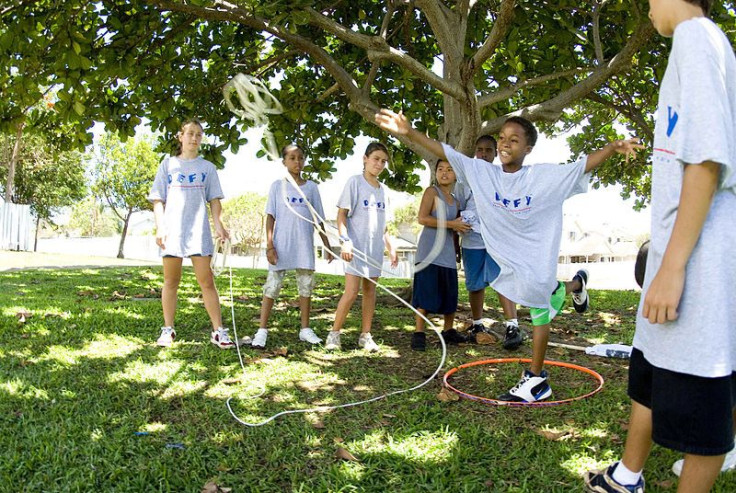How Summer Camp Helps Develop Your Child's Mental Health and Resilience

Summer is almost here and that means school's out! Parents find themselves in a rut when they have so much to do, but their children don't, during the summer months.
While having your child watch 10 hours of television a night or play video games throughout the day sounds like an easy fix, it can often impair their cognitive development. The National Summer Learning Association (NSLA) reports that most students lose about two months of grade level equivalency in mathematical computation skills over the summer months.
Alarmingly, children who are at high risk of obesity tend to gain weight more rapidly when they are out of school in the summer due to the lack of physical productivity many face just sitting at home.
Summer camp — day or overnight — provides the opportunity for children to hone in their life-skills and enhance their cognitive and behavioral development.
Every year, more than 11 million children in the United States attend camp - 7,000 are resident (overnight) and 5,000 are day camps reports the American Camp Association (ACA). These camps provide children with a safe, nurturing environment that gives them opportunities for leadership and personal growth.
The decision to send your child off to an overnight summer camp is not an easy task as a parent, especially if you don't know if they are ready.
Bob Ditter, M.Ed., LCSW, who has worked with children's summer camps since 1982, believes the best time to send a child to camp depends on the individual child.
"There are some six and seven year-olds who march eagerly off to camp without a problem, while some eleven year-olds cower with a fear of becoming homesick," said Ditter to PBS.org. For example, children who tend to have friends at home and have slept over a friend's house are most likely ready for camp compared to a child who has a tough time making friends.
Children need to start to learn how to separate themselves from their families in order to become resilient and less reliant on their parents for healthy cognitive and behavioral development.
Separation from Mom and Dad is "...the primary key psychological and emotional benefit for children and parents going to sleep away camp" said Dr. Fran Walfish, a leading child, teen, parent, and family psychotherapist and author in Beverly Hills, CA, to Medical Daily. Camp is a good way to embed this autonomy and independence in your child to aid as they reach young adulthood.
Separation skills are not only necessary for the children but also for the parents. The advice and tender love and care a parent has provided a child throughout the years will affect their overall development. Once the parent reassures themselves that they are ready for their child to go to camp and accept that the separation is part of life - both parent and child can move forward to planning for summer camp.
It's time to turn off the cell phones and iPods and help your child pack their bags to give them the experience of a lifetime that will improve their mental health and resilience.
How Resilience Gives Children Encouragement
Children who attend summer camp gain a sense of resiliency when they face new challenges like learning how to build a fire, going on a hike or conquering a high ropes course said Michael Ungar, Ph.D on Psychology Today.
A camp is a nurturing environment where children are encouraged to take safe risks and learn from them whether they succeed or fail. Unlike school, children can try to implement new methods of how to do things without a set time limit on when the task should be done. Summer camp provides the freedom for children to make their own mistakes and learn from them so they know how to cope success and failure.
How Confidence Helps Children Overcome Challenges
Summer camp can aid children with building their self-esteem in a healthy and positive way. The "can-do" attitude is a trait many parents want to instill in their kids. However, this can only be achieved if they are faced with new challenges on their own.
When kids achieve something, big or small, like brushing their own teeth or riding a bike, they have a sense of capability and a fuel of confidence, according to Kids Health.org. Summer camps provide plenty of opportunities for kids to face new challenges and build their self-confidence through the daily achievements they make.
How Independence Builds Character In Children
At camp, children can learn how to do things for themselves without mom or dad supervising them. "Kids learn to be self-reliant and take care of their personal needs including hygiene, nutrition, and sleep" said Walfish to Medical Daily.
In addition, a safe summer camp allows kids to make their own decisions without the guidance of their parents or teacher. They will begin to take care their personal space as they feel a sense of responsibility has been delegated to them.
How Social Skills Help Children Respect Others
Enrolling your child in summer camp means that they will be a part of small community. A sense of belonging will allow your child to establish the social skills that will help him or her have respect for others. For example, when a child shares a cabin with another child, they will have to delegate the responsibilities among themselves such as, brooming and bathroom duty.
Communication is key in this situation and this will help your child understand how to effectively talk to others in a respectful way. Walfish told Medical Daily that kids in summer camp are encouraged "to reach out and develop new friendships with other kids both one-on-one and in groups."



























